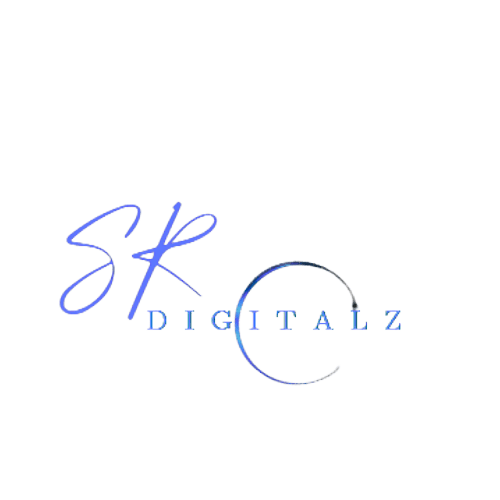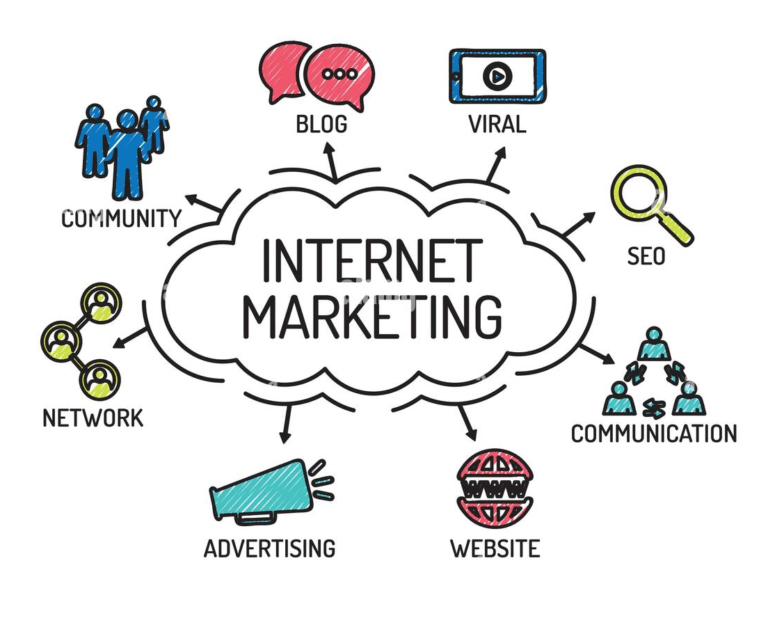The Role of Blockchain in Digital Marketing and IT Solutions in 2024
Once mostly recognized for its use in cryptocurrencies, blockchain technology is currently having a big impact on a number of other areas, such as IT solutions and digital marketing. By boosting operational efficiency, security, and transparency, blockchain is revolutionizing these industries in 2024. Knowing how blockchain functions in various domains is essential for maintaining competitiveness as companies seek to implement innovative solutions.
We’ll examine how blockchain technology is changing digital marketing and IT solutions in this blog, emphasizing how it affects efficiency, security, and transparency.
What is Blockchain?
Blockchain is a distributed, decentralized ledger technology that securely and irrevocably records transactions across several networks. A list of transactions is contained in each block of the blockchain, and each new block is connected to the one before it to create a safe chain. Blockchain is the perfect option for sectors that depend on data security and integrity because of its structure, which guarantees that data cannot be changed or removed without network consensus.

1. Enhanced Security in Digital Marketing and IT Solutions
The strong security properties of blockchain are among its most important benefits. Data security is a major concern in both IT solutions and digital marketing. Cybersecurity hazards, such as hacking and data breaches, are ever-present and have the potential to erode consumer confidence and corporate operations.
a) Data Protection in Digital Marketing
Large volumes of user data are gathered by marketers in order to tailor campaigns and maximize outcomes. This data is frequently susceptible to breaches, though. By encrypting data over a decentralized network, blockchain technology solves this problem and makes it nearly impossible for hackers to access or alter private data. The decentralized structure of blockchain guarantees that there is no single point of failure, which enhances the overall security of client data in contrast to traditional databases, which store data in a central location.
b) Securing IT Infrastructure
Blockchain technology provides safe data storage and communication in IT solutions. Blockchain technology can be used by IT workers to manage identities, safeguard confidential company data, and secure supply networks. Blockchain is perfect for sectors like healthcare, finance, and government where data integrity is crucial because of its immutability, which guarantees that once data is written, it cannot be altered or distorted.
2. Improved Transparency for Better Trust
Another essential advantage of blockchain in IT and digital marketing is transparency. Blockchain makes it possible to see more clearly how data is used and shared, which promotes trust between companies and customers in a world where trust is crucial.
a) Transparency in Advertising
Transparency has frequently been a problem for digital marketing, particularly in online advertising. Businesses have lost billions as a result of fraudulent practices including ad stacking and click fraud. Blockchain offers an open ledger that logs each click, ad impression, and transaction. By monitoring the precise allocation of their money and confirming that their advertisements are reaching the intended target, advertisers may minimize ad fraud and increase return on investment (ROI).

A blockchain-based digital marketing platform, for instance, might enable companies to confirm the legitimacy of their ad placements, guaranteeing that bots or phony accounts won’t see their advertising. Advertisers can improve their efforts and gain the audience’s trust thanks to this more openness.
b) Supply Chain Transparency in IT Solutions
Blockchain technology in IT solutions makes it possible to trace goods and services transparently across the supply chain. The blockchain records every movement and transaction, enabling businesses to confirm the provenance, quality, and origin of goods. This is especially helpful in sectors like electronics and medicines where there is a high risk of counterfeit goods.
IT workers may improve quality control and lower the risk of fraud by utilizing blockchain technology to make sure that every element in their supply chain is genuine and accounted for.
3. Increased Efficiency with Automation and Smart Contracts
Both the marketing and IT industries place a high value on efficiency, and blockchain technology is essential for automating processes and implementing smart contracts.
a) Blockchain and Marketing Automation
Blockchain technology offers precise, up-to-date data across numerous platforms, which helps improve marketing automation. Blockchain technology, for instance, can be used by marketers to build decentralized, real-time customer profiles that enable more accurate targeting and personalization. This saves time and money by doing away with the need to aggregate data from several sources.
Through tokenized reward schemes, blockchain can also help with peer-to-peer marketing. By using blockchain-based tokens as incentives, brands can encourage consumers to interact with their goods or services. In addition to fostering loyalty, this establishes a mechanism for consumer engagement that is clear and verifiable.
b) Smart Contracts in IT Solutions
Smart contracts are self-executing agreements that have their terms encoded directly into the code. When certain circumstances are met, these contracts automatically carry out transactions, doing away with the need for middlemen and lowering the possibility of human error. Smart contracts can be used in IT solutions to automate a number of procedures, including data sharing, licensing, and service-level agreements (SLAs).
For instance, a software license could be automatically renewed by a smart contract upon payment receipt, eliminating the need for human involvement. In addition to expediting the procedure, this lowers administrative expenses and guarantees adherence to the conditions of the contract.

Conclusion:
Blockchain technology’s use in IT solutions and digital marketing will only increase as it develops further. Businesses hoping to prosper in an increasingly digital environment must take advantage of blockchain’s increased efficiency, enhanced security, and improved transparency. In 2024, blockchain is assisting businesses in establishing trust and streamlining operations through everything from automating corporate procedures to protecting customer data.
To keep ahead of the curve, companies in the IT and digital marketing sectors should investigate blockchain solutions now. Businesses may enhance their overall performance and client interactions while safeguarding their assets by utilizing blockchain technology.
Key Takeaways:
- Blockchain improves data security in the IT and digital marketing domains.
- Consumers and businesses gain trust when there is greater transparency.
- Blockchain uses smart contracts and automation to increase efficiency.
In the upcoming years, blockchain is expected to become a key component of IT solutions and digital marketing due to its increasing influence in the tech sector. Businesses that make blockchain investments now will be in a strong position to profit from a future that is safer, more open, and more effective.
FAQs
1. What is blockchain, and how does it work?
Blockchain is a distributed, decentralized ledger that securely and irrevocably logs transactions across numerous computers. By using cryptography to connect data blocks, it protects data integrity by prohibiting manipulation or alterations without network consensus.
2. How is blockchain used in digital marketing?
Blockchain is used in digital marketing to improve transparency, stop ad fraud, and secure consumer data. It gives marketers a reliable ledger for monitoring advertising campaigns, confirming the accuracy of data, and guaranteeing precise targeting without jeopardizing customer privacy.
3. What are the benefits of blockchain for IT solutions?
Blockchain enhances IT solutions through supply chain transparency, data storage security, and smart contract automation. Additionally, it guarantees that data is unchangeable and only accessible by those with permission, enhancing the security and dependability of IT systems.
4. How does blockchain improve security in marketing and IT sectors?
By encrypting data, limiting unwanted alterations, and decentralizing data storage, blockchain improves security. Sensitive consumer data is protected in digital marketing, and vital company information and communication channels are protected from online attacks in IT solutions.
5. What role does blockchain play in transparency?
All network users can access the transparent, traceable transaction record that blockchain generates. This aids advertisers in tracking ad spending and success in digital marketing. IT enables businesses to confirm the legitimacy and place of origin of goods in the supply chain.
6. What are smart contracts, and how do they benefit businesses?
Self-executing agreements with terms embedded directly into the blockchain are known as smart contracts. By doing away with middlemen and lowering the possibility of human error, these contracts automatically carry out transactions when specific criteria are satisfied. They cut expenses, save time, and simplify procedures in IT and marketing.
7. Can blockchain help reduce costs in digital marketing?
Indeed, by removing middlemen like ad networks and facilitating more direct communication between companies and customers, blockchain can lower the expenses associated with digital marketing. By guaranteeing that ad placements are authentic and reach actual audiences, it also reduces costs associated with fraud.
8. How does blockchain impact efficiency in IT solutions?
Through automation (through smart contracts) and real-time, precise data exchange across decentralized networks, blockchain improves the efficiency of IT solutions. This increases overall operational effectiveness, decreases manual labor, and expedites procedures like supply chain tracking and licensing.
9. Is blockchain technology scalable for large businesses?
It depends on the kind of blockchain being used, but yes, blockchain technology is scalable. Newer blockchain models, including proof-of-stake and sharding, are being developed to effectively handle larger transaction volumes, even though some classic blockchain systems may have scalability problems.
10. What industries benefit the most from blockchain technology?
Blockchain technology is especially advantageous for sectors like marketing, supply chain management, healthcare, and finance that mainly depend on data security, transparency, and effective transaction processing. But its uses are spreading to a number of other industries, such as government, retail, and IT.







